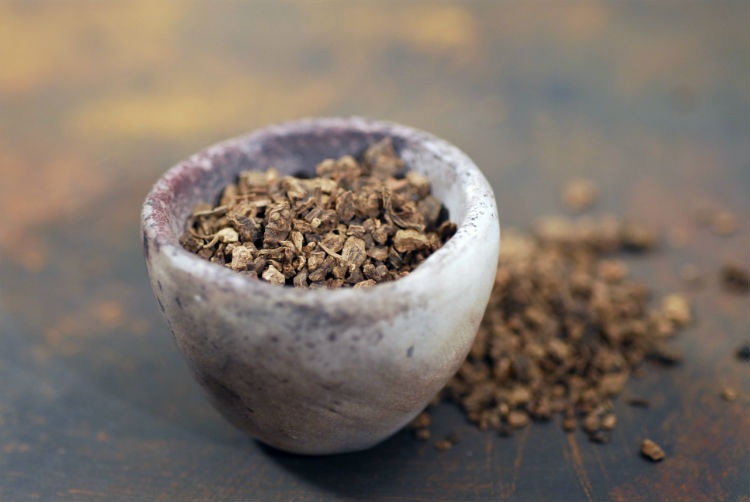
We all know how important it is to get enough sleep.
Even just a day or two in which we are short on sleep can leave us feeling groggy and unfocused. However, much research seems to show that the herbal extract of the Valeriana officinalis plant may benefit patients who suffer from chronic insomnia.
A few studies have noted that valerian also seems to relieve mood disorders (such as anxiety, bipolar disorder, or depression) among patients who also have insomnia.
The potential value for valerian in treating mood disorders is particularly intriguing, as side effects from standard mood-disorder medications, such as drowsiness, dizziness, weight gain, constipation, nausea and vomiting, can be very unpleasant.
How does valerian improve mood disorders, and how effective is it?
How does valerian work?
Valerian is a tall, perennial, flowering plant that is native to North America, Europe, and Asia.1 It has been used for thousands of years to treat insomnia, headaches, and convulsions.1 It is sold in many forms, including capsule, tea, tincture, and essential oil. All of these preparations are usually derived from the root of the plant.1
Researchers are still not certain of precisely how valerenic acid (the main active ingredient in the plant) works to improve mood and help fight insomnia.1,2 However, there has been some interesting exploratory work done in the field, mainly centering on the gamma-aminobutyric acid (GABA) inhibitory neurotransmitter, which sends messages between the brain and the nervous systems. GABA is also thought to have sedative and anti-anxiety effects.2,3
Valerenic acid extract strengthens GABA’s ability to bind with GABA receptors, which then increase the available amount of GABA. Interestingly, one of most popular types of anti-anxiety medications, benzodiazepines, is thought to work in much the same way.1-3
Of course, the advantage of valerian over benzodiazepines is that the side effects associated with valerian are less severe.1
What does the research say?
A 2014 meta-analysis paper in the Australian & New Zealand Journal of Psychiatry examined a number of popular herbal medications to determine their effectiveness for treating anxiety and insomnia, particularly for patients with bipolar disorder.4
This type of study can be very useful when research mainly consists of papers with only a small number of subjects. A meta-analysis combines these smaller studies in order to look for similar patterns, which can then give more weight to the overall findings.
When the researchers pooled findings from smaller studies, valerian received an A rating in terms of the level of evidence for treating anxiety and a B rating for the level of evidence for treating insomnia.4 It also appeared to have minimal side effects compared to some of the other herbal medications examined in the study.
While some of the individual findings may have been inconclusive, the researchers felt that valerian was quite promising for treating anxiety or insomnia in patients with bipolar disorder. Furthermore, it seemed to work at least as well as benzodiazepines for treating anxiety.4
Many patients with mood disorders, particularly anxiety and bipolar disorder, also have chronic insomnia. Fortunately, valerian shows promise as a safe alternative or adjunct to benzodiazepines for treating both conditions.
References
- Valerian (herb). Accessed Dec. 13, 2017.
- EBM Consult. Accessed Dec. 13, 2017.
- Lydiard RB. (2003). The role of GABA in anxiety disorders. Journal of Clinical Psychiatry, 64(Suppl 3), 21-27.
- Baek JH, Nierenberg AA, Kinrys G. (2014). Clinical applications of herbal medicines for anxiety and insomnia: Targeting patients with bipolar disorder. Australian & New Zealand Journal of Psychiatry, 48(8), 705-715.